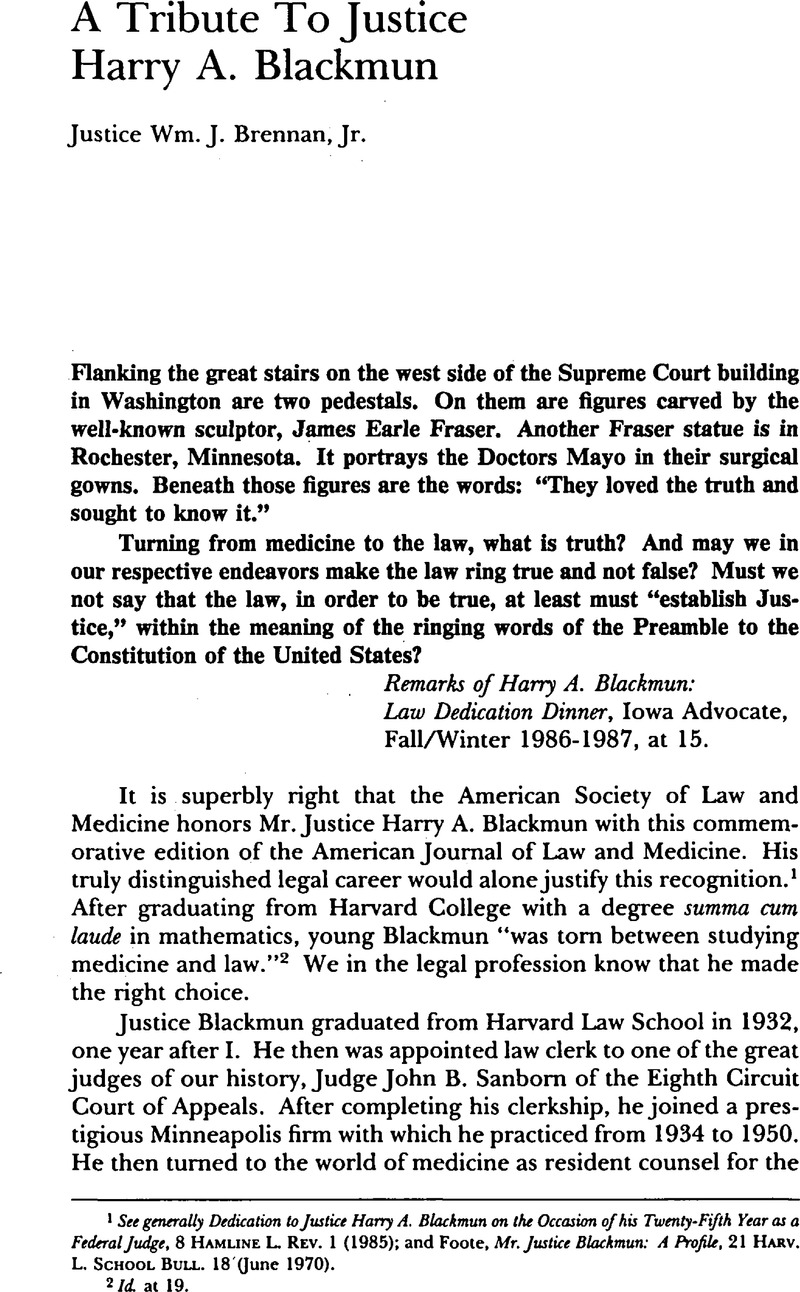
1 See generally Dedication to Justice Harry A. Blackmun on the Occasion of his Twenty-Fifth Year as a Federal Judge, 8 HAMLINE L. REV. 1 (1985); and Foote, , Mr. Justice Blackmun: A Profile, 21 HARV. L. SCHOOL BULL. 18(June 1970)Google Scholar.
2 Id. at l9.
3 Id.
4 For an overview of Judge Blackmun's opinions as an Eighth Circuit judge, see generally Lay, , The Cases of Blackmun, J. on the United States Court of Appeals for the Eighth Circuit 1959-1970, 8 HAMLINE L. REV.Google Scholar at 2 (Donald Lay is Chief Judge of the Eighth Circuit Court of Appeals).
5 410 U.S. 113 (1973) (right of privacy in pregnant woman's choice of abortion).
6 106 S.Ct. 2841, 2848 (1986) (right of privacy with respect to private, consensual sexual activity).
7 Olmstead v. United States, 277 U.S. 438, 478 (1928)(Brandeis, J., dissenting)(The Court held that evidence of conspiracy obtained by wiretapping private telephones did not violate the fourth amendment, because neither search nor seizure occurred where the evidence was obtained via hearing. Justice Brandeis argued that this was an unjustifiable intrusion violating the fourth amendment and that use of such evidence violated the defendants’ fifth amendment right against self-incrimination.) cited in Bowers v. Hardwick, 106 S. Ct. at 2848, and Roe v. Wade, 410 U.S. at 152.
8 421 U.S. 809 (1975) (the application of a Virginia statute prohibiting publications and advertisements encouraging abortions infringed unconstitutionally on free speech).
9 425 U.S. 748 (1976) (a Virginia statute that prohibited advertisement of prices of prescription drugs was an unconstitutional infringement of commercial speech).
10 O'Meara, , Natural Law and Everyday Law, 5 NAT. L.F. 83, 96-97 (1960)Google Scholar (footnotes omitted).
11 Rooney, , New Trends in Comparative Jurisprudence and Legal Philosophy, 1964 ABA SEC. INT'L AND COMP. L. 5–6Google Scholar.
12 Hand, , Thomas Walter Swan, 57 YALE L.J. 167, 172 (1947)Google Scholar.